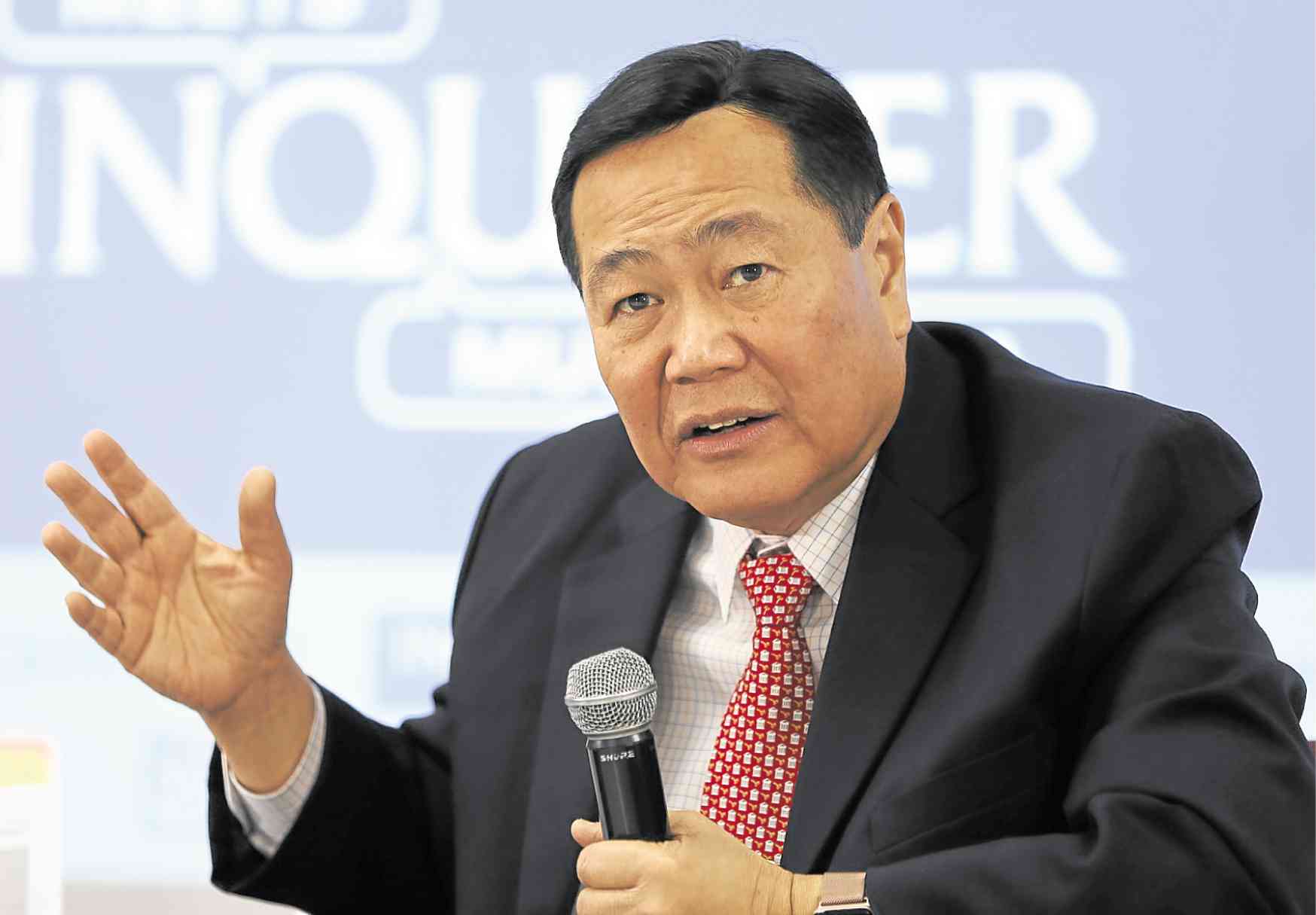MANILA, Philippines–Retired senior associate justice Antonio T. Carpio, hailed by his peers at the Supreme Court as the quintessential scholar, a statesman and a patriot, will resume his weekly column at the Philippine Daily Inquirer.
Carpio was a columnist for Inquirer in the late 90s after he returned to private practice when then-President Joseph Estrada assumed the presidency. His stint as a columnist stopped after he was appointed as justice of the Supreme Court by then-President Gloria Macapagal-Arroyo in 2001.
Since then, for 10 years, he shied away from the media, making himself known only as the “quintessential justice who spoke through his decisions.”
‘Unorthodox Justice’
The Supreme Court is home to the “Gods of Padre Faura” or its Associate Justices. They are called as such as they “never descend” from the hallowed halls of their chambers. They are only known to the public by the decisions they make.
WATCH: Retired SAJ Antonio Carpio explains the importance of media in promoting the rule of law. @inquirerdotnet pic.twitter.com/N4JjaTQGMQ
— tetch torres-tupas (@T2TupasINQ) October 30, 2019
But Carpio, after 10 years, has decided to break the tradition by doing what seems to be unorthodox for a member of the high tribunal — he granted media interviews but only in relation to his advocacy–defending the country’s sovereign rights in the West Philippine Sea.
“I realized that media is a crucial partner in explaining to the Filipino people why we must defend the West Philippine Sea and how we can defend the West Philippine Sea,” Carpio said in his speech during the testimonial dinner hosted by the Asian Institute of Journalism and Communications (AIJC) Tuesday evening.
Carpio has been championing the country’s resolve to uphold the country’s sovereign rights over the West Philippine Sea. Aside from media interviews, he also gives lectures around the country and abroad regarding the issue.
“I went on a lecture tour in the Philippines and abroad to explain the West Philippine Sea issues. It was quite unorthodox for a Supreme court justice to be doing this but I felt it was necessary to defend our sovereign rights,” Carpio said.
“I did not see any conflict of interest because China was beyond the jurisdiction of the Philippine Supreme Court,” he said, adding that when he had speaking engagements abroad, he sought the permission of the Supreme Court en banc.
His advocacy never affected his work as associate justice as he was able to pen over 900 decisions and left no backlog of cases.
“I had to work doubly hard which made me look forward to my retirement day,” Carpio said.
Post-Supreme Court
“Now that I have retired, I will be writing a weekly column in a major national daily newspaper. In a way, I will only be resuming my affiliation with media since I was writing a weekly column in the same major daily before I joined the Court,” Carpio said.
Some members of the media who gave their testimonials are Prof. Solita “Winnie” Monsod of GMA Network and also an Inquirer columnist, Ellen Tordesillas of Vera files, John Nery of the Philippine Daily Inquirer and Vergel Santos of Rappler and New York Times.
Carpio, in his speech, explained the importance of the media in pressuring China to comply with the Arbitral ruling. He said there are two ways to make China comply–recognize the ruling voluntarily which he believes is impossible, and through world opinion.
“China needs the world. It has to export to and import from, continue its economic development. Shaping world opinion starting within the Philippines, spreading throughout Southeast Asia and then through the rest of the world is tailor-made for journalists like you… Your journalists’ pen is mightier than the sword in shaping world opinion,” he said.
“I believe the seemingly impossible dream can still be achieved with your help,” said Carpio. “All you have to do is to tell the historical truth about the South China Sea…that China never owned or controlled South China Sea throughout its history.”
